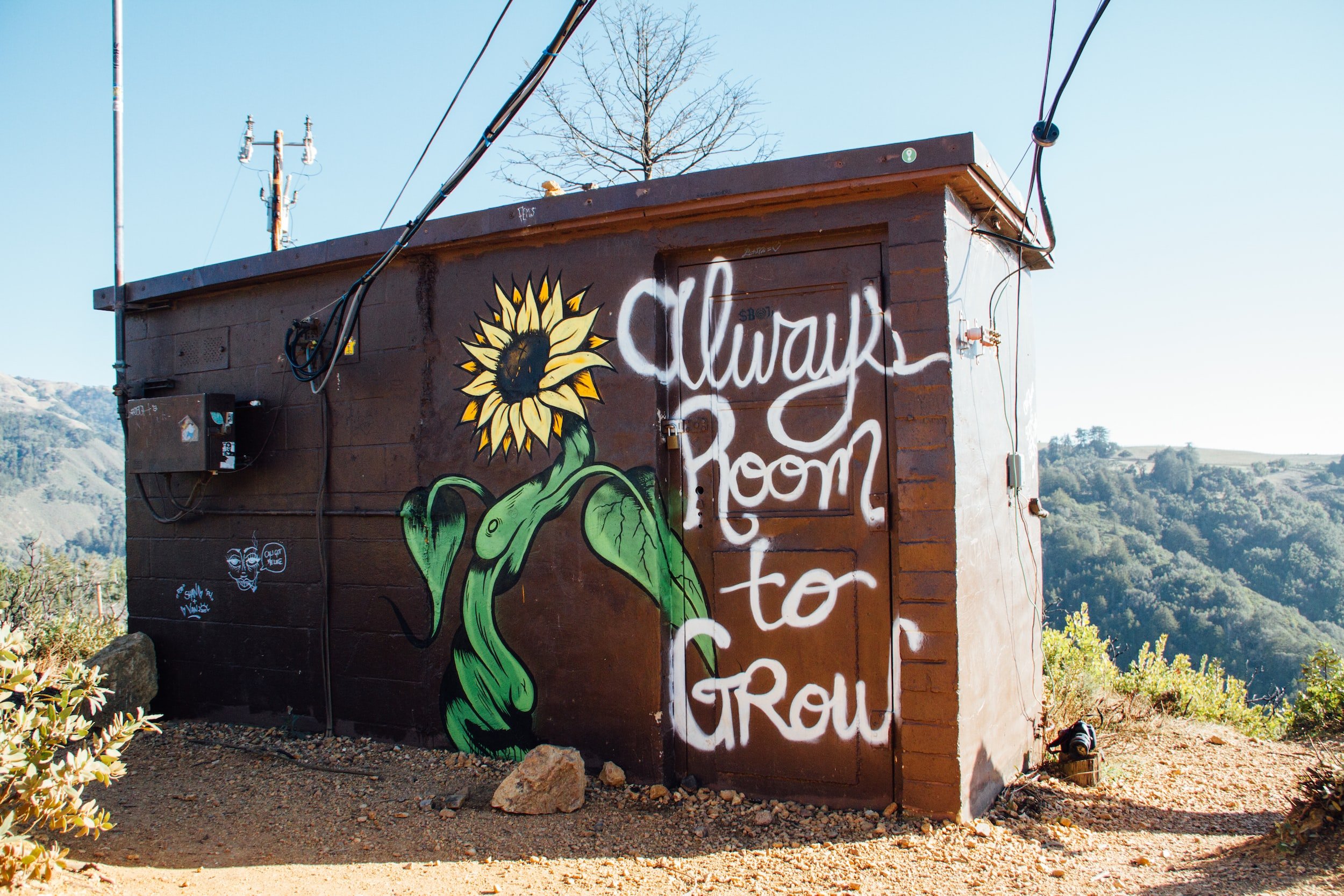The Importance of Self Connection: Top 5 Tips for Developing a Stronger Relationship with Yourself
Affiliate Disclosure: This post includes affiliate links, which means I may earn a small commission on purchases made through these links at no extra cost to you. Thank you for supporting this site.
Self-connection is deepening your understanding of yourself and building a stronger relationship with your thoughts, emotions, and values. It is vital to personal growth and development and can lead to greater self-awareness, inner peace, and a more meaningful life.
This blog post will delve into the concept of self-connection and its importance and provide tips for developing a stronger connection with yourself.
What is self-connection?
Self-connection refers to being aware of and attuned to one's emotions, thoughts, and physical sensations. It involves being present with oneself and cultivating a deep understanding of one's needs, values, and desires.
Self-connection is essential for several reasons. First, it allows us to better understand our emotions and needs, which can help us make more informed decisions and set healthy boundaries. It also helps us be more compassionate and understanding, leading to greater self-esteem and self-confidence.
Furthermore, self-connection can help us easily navigate difficult situations and challenging emotions. By tuning in to our own experiences, we can develop greater emotional intelligence and resilience, which can benefit us in all areas of life.
Ultimately, self-connection is an ongoing process that requires intentional effort and practice, but the benefits are well worth it. By cultivating a strong sense of self-connection, we can lead more fulfilling and authentic lives and better navigate the challenges that come our way.
The difference between self-connection, self-care, and self-love:
Self-connection, self-care, and self-love are all important practices for personal well-being, but they differ in focus and purpose.
Self-connection involves developing a deeper understanding of oneself and creating a stronger relationship with one's inner self. It is about tuning into one's thoughts, feelings, and desires and learning to trust and honor them. Self-connection aims to develop a more authentic, empowered, and fulfilling life.
On the other hand, self-care is about taking care of oneself physically, emotionally, and mentally. It involves engaging in activities promoting well-being, such as getting enough sleep, eating a healthy diet, exercising regularly, and practicing stress-management techniques. Self-care aims to maintain good physical and mental health and prevent burnout.
Self-love involves developing a positive relationship with oneself. It involves recognizing one's strengths and weaknesses, being compassionate and forgiving towards oneself and treating oneself with kindness and respect. The goal of self-love is to cultivate a sense of self-worth and self-esteem.
While self-connection, self-care, and self-love may overlap and support each other, they are distinct practices with different focuses and purposes. Self-connection is the foundation for developing a deeper relationship with oneself, while self-care and self-love are the actions taken to support and nourish oneself.
“Self-connection is the foundation for developing a deeper relationship with oneself, while self-care and self-love are the actions taken to support and nourish oneself.”
Why you should prioritize self-connection
Mental and emotional well-being
Self-connection is an important aspect of mental and emotional well-being. When we are connected to ourselves, we can better understand our needs, desires, and feelings. This understanding allows us to make better decisions and take better care of ourselves, leading to improved mental and emotional well-being.
Here are some ways that self-connection can improve mental and emotional well-being:
Increased self-awareness: When connected to ourselves, we are more aware of our thoughts, emotions, and behaviors. This increased self-awareness allows us to identify areas of our lives that may be causing stress or anxiety and to take steps to address them.
Greater self-acceptance: When connected to ourselves, we are more likely to accept ourselves for who we are. This self-acceptance can lead to greater self-confidence and improved self-esteem.
Improved relationships: We can better connect with others when we are connected to ourselves. We are more empathetic and understanding of others, which can lead to improved relationships.
Reduced stress and anxiety: When connected to ourselves, we can better manage stress and anxiety. We can identify the sources of our stress and take steps to address them, reducing stress and anxiety levels.
Increased resilience: By establishing a connection with ourselves, we become better equipped to manage life's challenges, increasing the likelihood of having a positive perspective and recovering from setbacks.
Greater inner peace: By developing a stronger connection with yourself, you may experience a greater sense of inner peace and calm. This is because you'll be better equipped to identify and address the underlying causes of stress and anxiety, which can help you feel more centered and balanced.
Enhanced creativity: When you're in touch with your true self, you may find that your creativity and inspiration flourish. This is because you'll be better able to tap into your unique perspective, experiences, and strengths, which can fuel your creativity and innovation.
Personal growth and development
Self-connection can be a powerful tool for personal growth and development, enabling individuals to make better decisions, set healthy boundaries, and live more authentically.
Here are some ways in which self-connection can help in these areas:
Making Better Decisions: When deeply connected to yourself, you can better identify your values, goals, and priorities. This helps you make more informed decisions aligned with your true self rather than being driven by external expectations or pressures. By reflecting on your needs and desires, you can make decisions that feel right for you and support your overall well-being.
Setting Healthy Boundaries: Establishing healthy boundaries in your personal and professional relationships also requires self-connection. By gaining a profound understanding, you can recognize your requirements for feeling secure, respected, and appreciated. As a result, you can effectively and confidently express your boundaries without worrying about criticism or refusal.
Living a More Authentic Life: Developing a strong connection with yourself can also help you live more authentically. When you are in touch with your true self, you can better identify your passions, interests, and unique qualities. This can give you the confidence and motivation to pursue your dreams and goals without feeling held back by fear or self-doubt. By embracing your authentic self, you can experience greater fulfillment and purpose in your life.
Here are 5 practical tips for developing a deeper connection with yourself:
Start journaling: Journaling is a powerful technique for establishing self-connection. Allocate daily time to pen down your thoughts and feelings, and be candid and open. This exercise can facilitate a more profound comprehension of your emotions, necessities, and principles.
Practice mindfulness: Mindfulness necessitates observing the present moment without evaluation. This can aid in developing self-awareness by enabling you to become more attuned to your body, emotions, and thoughts. Consider integrating mindfulness exercises such as meditation, yoga, or deep breathing into your daily activities.
Engage in self-reflection: Reflect on your life, values, and goals. This can enable you to gain a more profound comprehension of yourself and your aspirations in life. Ask yourself questions such as "What brings me joy?" "What are my strengths and weaknesses?" and "What do I want to achieve?"
Incorporate self-compassion: Extend the same level of kindness and empathy to yourself as a close friend. Recognize your strengths and limitations and be lenient with yourself when things do not go as intended. This can aid in developing a more profound sense of self-acceptance and self-love.
Implement healthy boundaries: Learning to say "no" and setting boundaries can be important to developing a stronger connection with yourself. It can help you prioritize your own needs and protect your energy. Practice saying "no" to things that don't align with your values or priorities, and set boundaries that allow you to take care of yourself.
Recognizing that the journey toward self-connection can sometimes be challenging is essential. There may be moments when you feel lost or disconnected, and that's okay. Granting yourself permission to experience all of your emotions and showing yourself compassion as you navigate the process of establishing self-connection is crucial. Remember that developing a stronger connection with yourself is a lifelong process that requires ongoing effort and self-reflection.
One way to stay committed to your journey towards self-connection is to regularly practice self-care. This can involve getting enough sleep, eating nourishing foods, engaging in physical exercise, and spending time with loved ones. Remember that self-care is not a luxury but a necessity for overall well-being. By caring for your physical and emotional needs, you'll be better equipped to continue your journey toward self-connection and personal growth.




















